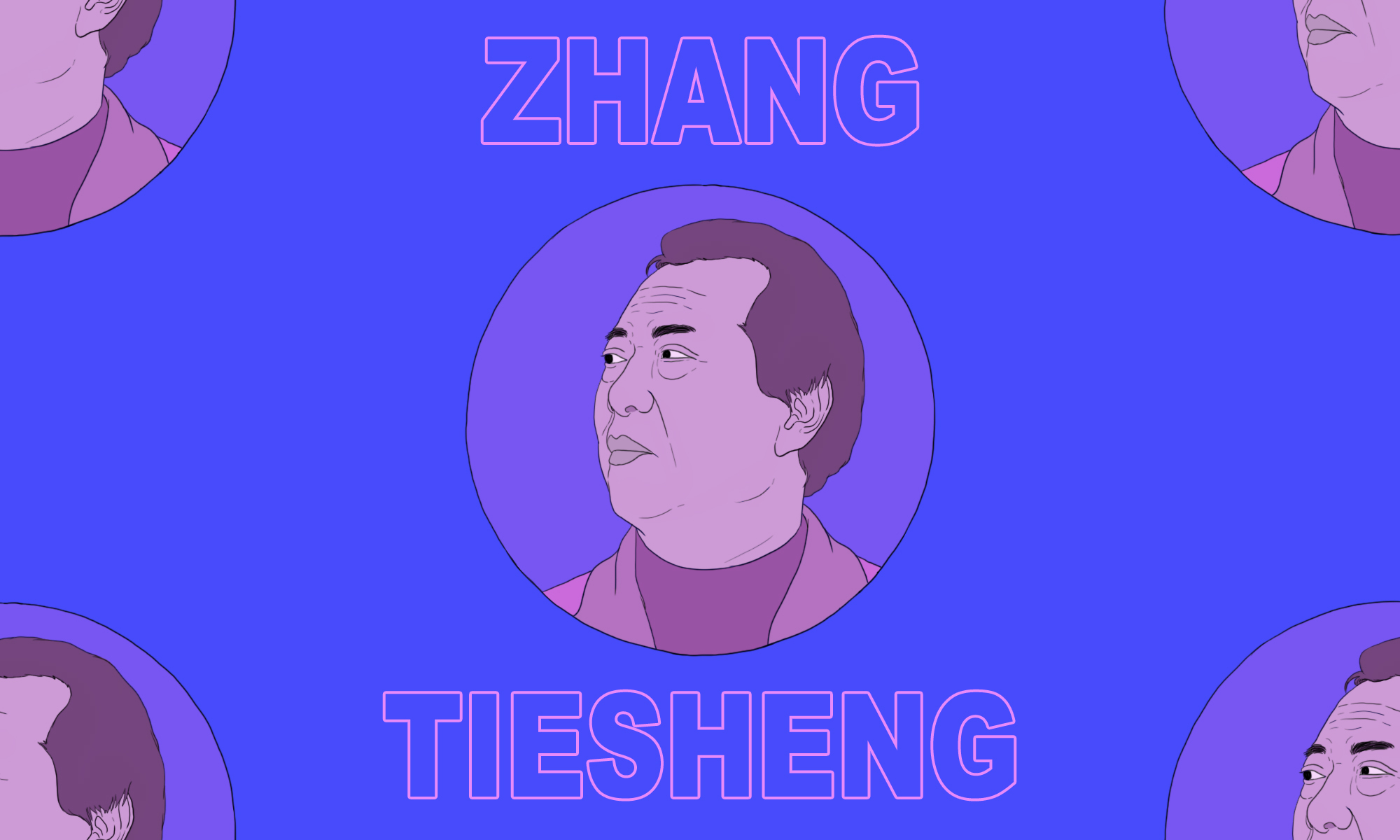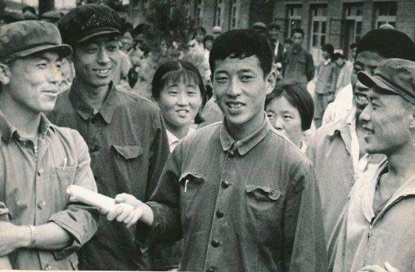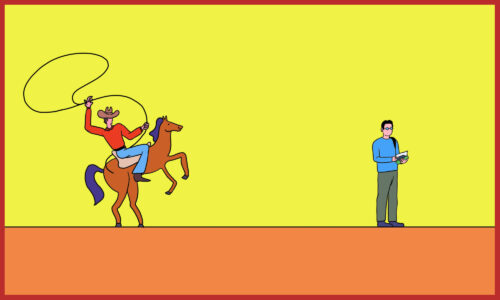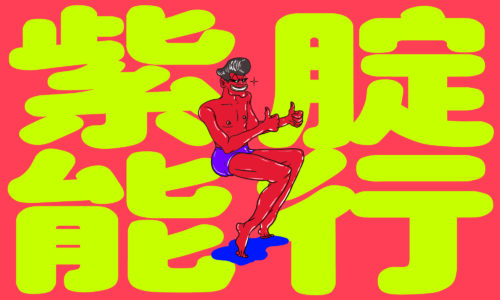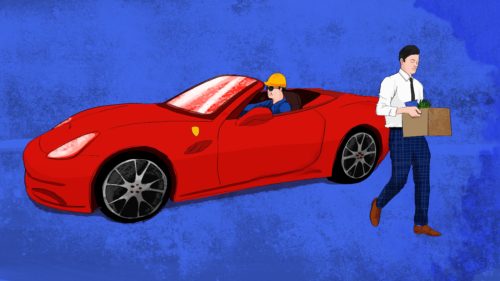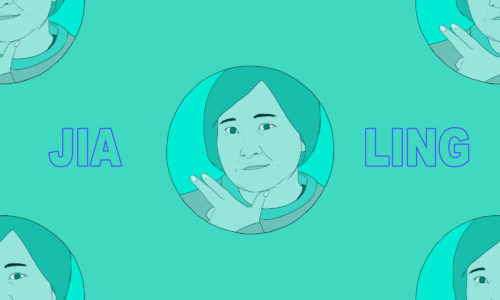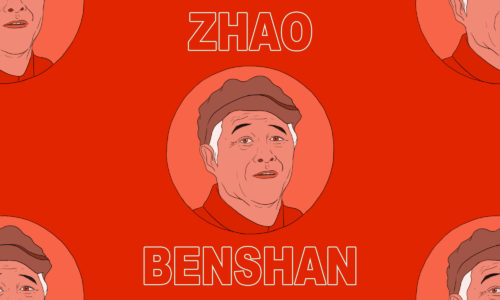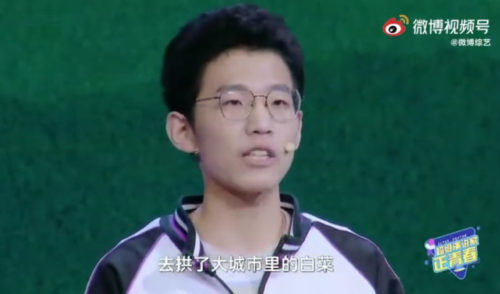Today saw the start of China’s notorious gaokao, the national college entrance exam, and this year’s 10.78 million examinees make this not only the largest gaokao in Chinese history, but also the largest exam in all of human history.
China’s reliance on exams as a means of assessing an individual’s abilities is both famous and ancient. But one man, during the Mao years, managed to buck the system, not only getting into his university of choice but also earning a place on its management committee by turning in a blank answer sheet.
Who is Zhang Tiesheng?
Zhāng Tiěshēng 张铁生, the “blank exam hero,” is either a shameless opportunist or virtuous pawn. It’s hard to accurately sketch Zhang’s character when most of the people who talk about him have a vested interest in raising him up, dragging him down, or (during reform and opening) clearing his name. Zhang has kept entirely out of the spotlight since his imprisonment from 1983 to 1991, so there is little else to go on.
Born in 1950 in Liaoning province, Zhang was sent down to the countryside, along with many city youths, in 1968, slowly working his way to becoming the leader of a commune production team. But in 1973, he was chosen by county cadres to take the entrance exam to go to university.
The thinking during the Cultural Revolution was that admission examinations had been a way of maintaining a bourgeois intellectual elite in universities — “bourgeois intellectuals must no longer dominate our schools” was Mao’s famous directive of May 7, 1966. If more students from lower-class backgrounds were to get into college, the bar needed to be lowered, and factors other than academic rigor needed to be prioritized. Those who wanted to be sent to university needed a good class and political background (workers, farmers, or peasants), to have worked for at least two years in communes or factories, and have the recommendation and approval of cadres from different levels of government.
But the lack of entrance exams demotivated teachers and students, leading to quality decline on campus. Admissions also became dependent on backroom deals with local cadres, who used their position to recommend their own relatives, a despised practice that became known as “using the backdoor.”
From 1970, although there was still no centralized exam — the national gaokao wouldn’t be restored until 1977 — universities had started re-introducing exams for their own campuses to improve student quality. In 1973 — the year that Zhang sat his exam — the State Council approved a document advising more consideration be given to exam results alongside a recommendation of good character (to the consternation of the hardline Gang of Four, led by Jiāng Qīng 江青, a.k.a. Madame Mao.)
This was how Zhang found his moment of fame. The story goes that at the end of his exams, Zhang turned in a blank answer paper, writing a statement on the back that he had only been given two days’ notice for the test, while working 18 hours a day in the fields had been his sole educational training. “It was a mind-blowing experience to stare at the geometry, physics, and chemistry questions on this paper today,” he wrote. He had been too invested in his own “self-struggle,” to say nothing of the harvest and food quotas. It wasn’t that he couldn’t have done well if he’d tried — indeed, he claimed that if they gave him two more days he guaranteed he’d get full marks.
“Speaking truly, I have no respect for these bookworms who have never done a day of honest work. Indeed, I am disgusted with them. The examination will be monopolized by those who are obsessed with college study…I feel frustrated because these few hours of written examinations can disqualify me and keep me from entering university.” He appeared to wash his hands of the whole thing, concluding that he could easily answer a few of the questions by flipping through the textbook provided, “but in my heart that would feel unpleasant.”
Turns out, he played his cards exactly right. Liaoning’s Party Secretary Máo Yuǎnxīn 毛远新 (Mao’s nephew) heard about the incident. He ordered Liaoning’s local newspaper to publish an editorial in large characters. “Although he seemingly could not answer the questions in physics and chemistry, the answer he returned was original and inspiring,” read the editorial. People’s Daily republished the piece three weeks later, as did all the other major newspapers in the country. Máo Zédōng 毛泽东 mentioned Zhang approvingly in passing, Jiang Qing called him “a hero who dared to go against the tide,” and a “learn from Comrade Zheng Tiesheng” campaign was trumpeted in numerous media all over the country.
Zhang became a figurehead for an easily recognizable brand of anti-intellectualism. For example, in the 1975 movie Breaking with Old Ideas, filmed when doubts about Cultural Revolution policies were widespread but debated by proxy, the championing of the importance of labor over academic qualifications gets heavy airtime. Set in the Jiangxi Communist Labor University during the Great Leap Forward, students abandon an important exam to save a sudden disastrous crop pest invasion, while the college president considers calluses on the hands as qualification enough for a local carpenter to gain entry.
But in real life, Zhang caused a new wave of campus backlash. The exams of 1973 were declared invalid, much to the consternation of those Zhang had rallied against. One such “bookworm” was Yihong Pan, who would go on to become a history professor at Miami University, Ohio. She had studied on her own for a couple of hours every evening after work in her dorm by the light of a kerosene lamp, thinking it the best way out of the Anhui countryside. “Disappointed and angry, I wondered what was wrong with wanting to go to university,” she wrote years later.
Although continuing to use admission exams, universities became reluctant to accept those with high-scoring test papers, instead admitting those with low grades. Noted historian Shén Zhìhuá reportedly got full marks in mathematics, but burned his science books once he heard about Zhang’s success story — and switched to humanities “to work out what is wrong with this society.”
Zhang succeeded all right — admitted to the Department of Veterinary Science of the Tieling Agricultural Institute in Liaoning. He was then also made a member of the university’s leadership team and a Party member. By 1975 he was a member of the Standing Committee of the Fourth National People’s Congress.
A swift fall
With Mao’s death, the end of the Cultural Revolution, and the arrest of the Gang of Four, Zhang was like a puppet whose strings had been cut. He too was arrested, ridiculed as a fraudulent “counter-revolutionary clown” in an intense media campaign launched to discredit the Gang and their stooges. “The questions asked were not difficult and the candidates could refer to textbooks,” crowed the Peking Review in a 1977 article. Zhang had not, it turned out, turned in a blank answer sheet — merely one that was terrible. “Zhang’s level was hopelessly low,” according to the Peking Review. “He got 61 in mathematics, 38 in Chinese language, and 6 in physics and chemistry.”
“He had made it very clear, at least in the propaganda, that he was turning in a blank paper — for physics and chemistry, it seems,” says Stanley Rosen, professor of political science at the University of Southern California. “So it’s possible that he scored 6%.”
The Peking Review claims that Zhang wrote his letter in desperation, knowing full well he would fail — selfish appeals like “this is what I have always dreamed of and wanted” and “will the leadership at all levels please give consideration to my application” had been deleted by Mao Yuanxin before it was published. “A bogus model needed to inspire others [was] very common in those days,” says Rosen. Zhang had then begged a teacher friend who was director of the county bureau of education to help him push his cause forward.
Academics Guo Jian, Yongyi Song, and Yuan Zhou back up an accusation from the Peking Review article that Zhang went to Beijing to “sow discord and confusion,” saying he also toured Shanxi and caused unrest wherever he went, talking about himself as a sword and gun fighting “restoration maniacs.” A court in Liaoning sentenced the 26-year old to 15 years in 1983. “I was as simple-minded as a calf at that time, and I could only parrot the words,” he pleaded in his defense.
In 1977, two months after regaining his power base, Dèng Xiǎopíng 邓小平 announced a full return to university admission solely through exams, held at the end of high school. “College enrollment has a direct bearing on the quality of college graduates and affects primary and middle school education,” read a People’s Daily editorial in October 1977. “Thus, it is a matter of major importance.”
A resit at life
Upon his release in 1991, China had changed beyond recognition. “Where’s the insect? What bug is that?” Zhang supposedly asked when a friend’s pager started beeping. He had been humbled and embarrassed by his time in prison, and he tried hard to avoid publicity, staying indoors listening to the radio and wearing sunglasses. Unsurprisingly, he struggled to find new employment, and the local government considered finding work for him a sensitive subject.
After several years of rejection, his pregnant wife introduced him to her former student, Jīn Wèidōng 金卫东, who would change his life. At that point, Jin was a salesman with a Masters from Shenyang Agricultural University, responsible for managing the northeast branches of Chia Tai Kangdi, a Shenzhen-based company specializing in producing and distributing animal feed. Jin hired Zhang, helping him learn the ropes of business, and later praised him in interviews as selfless, hardworking, and misunderstood.
Zhang currently owns 8.5% of Wellhope Agri-tech, a giant in animal husbandry and raw meat processing, which he and Jin helped found. In 2014, the New York Times estimated Zhang’s worth from his company at $61.8 million, thanks to its IPO on the Shanghai stock exchange. In 2020, the company reported an operating revenue of 9.8 billion RMB ($1.5 billion).
Zhang’s current living habits are hard to verify, but this Sohu blog post claims he has acquired permanent residency rights in New Zealand. Although now a historical footnote, his success story — of amassing substantial wealth despite not even trying in his exams, in a society that expects fat cats to rise up through hard work and personal merit rather than contacts and privilege — would leave a bitter taste in the mouths of the 10.78 million now sweating through their gaokao.
Chinese Lives is a recurring series.
